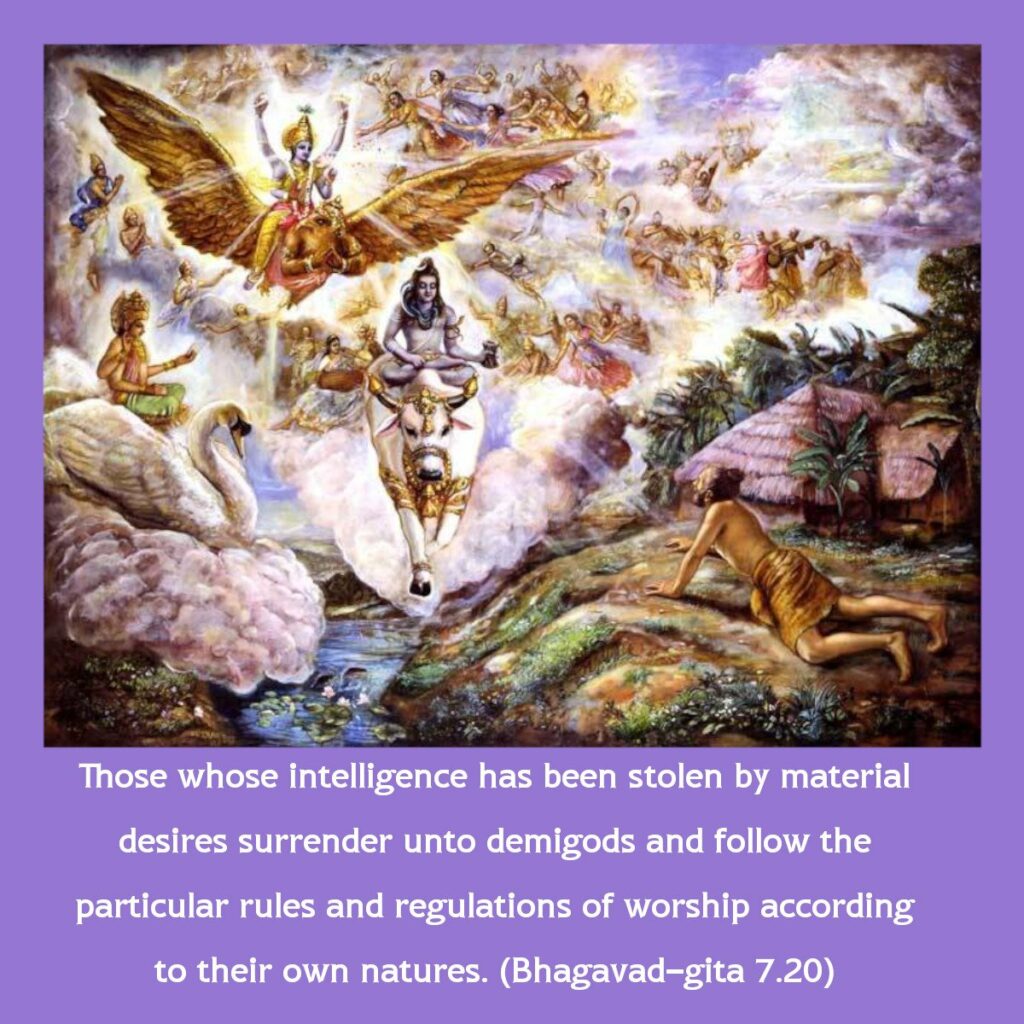कामैस्तैस्तैर्हृतज्ञाना: प्रपद्यन्तेऽन्यदेवता: |
तं तं नियममास्थाय प्रकृत्या नियता: स्वया || 20||
kāmais tais tair hṛita-jñānāḥ prapadyante ’nya-devatāḥ
taṁ taṁ niyamam āsthāya prakṛityā niyatāḥ svayā
kāmaiḥ—by material desires; taiḥ taiḥ—by various; hṛita-jñānāḥ—whose knowledge has been carried away; prapadyante—surrender; anya—to other; devatāḥ—celestial gods; tam tam—the various; niyamam—rules and regulations; āsthāya—following; prakṛityā—by nature; niyatāḥ—controlled; svayā—by their own
Translation:
But those whose discrimination has been led astray by various desires resort to other deities, following diverse rituals, constrained by their own natures.
Commentary:
Without thinking of the Supreme Being, some people worship other Devas for the purpose of acquiring some worldly benefit. Their wisdom is rented away by their desires, and so they perform various external rites and rituals for desire-gratification. They have no idea of the Supreme Paramatma. There are some people whose aim is to realise the Self but who are deprived of understanding by the deluding power of Maya. There are some others who entertain desires and who seek their gratification by worshipping various other Devas. The former have faith in the Supreme Lord; the latter do not have such faith in the Supreme.
Question: What steals away man’s understanding?
Answer: Desires.
Question: How do they arise?
Answer: By past samskaras.
Question: What does man do in consequence?
Answer: He forgets the Supreme Lord, and worships other Devas for the gratification of his desires.
Bhagavad Gita: Chapter 7 🔻 (30 Verses)
